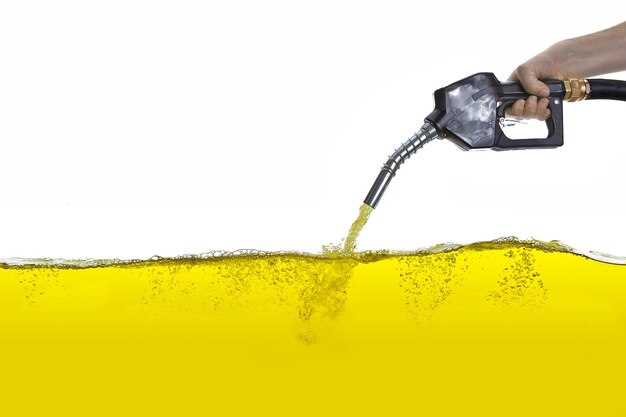

Diesel fuel quality is a crucial aspect of engine performance and efficiency. One of the key indicators of this quality is the cetane rating, which measures the ignition delay of diesel fuel. A higher cetane rating signifies that the fuel ignites more quickly when injected into the engine, resulting in smoother operation and improved power output. Understanding cetane ratings is essential for both manufacturers and consumers, as it directly influences engine performance and emissions.
In the realm of diesel engines, the cetane number can greatly impact various factors such as cold starting ability, engine noise, and fuel economy. Generally, fuels with a cetane rating of 45 or higher are preferred for optimal combustion and performance. Low cetane fuels can lead to poor ignition, resulting in longer combustion times and incomplete fuel burning. This not only affects performance but can also increase pollutant emissions, posing a challenge for those striving for cleaner diesel technologies.
As the demand for high-quality diesel fuel continues to rise, understanding cetane ratings becomes increasingly important. Knowing how to assess and select diesel fuel based on its quality and cetane rating can help vehicle owners ensure their engines operate efficiently and effectively, contributing to enhanced performance and reduced environmental impact.
How Cetane Ratings Affect Engine Performance and Efficiency

Cetane ratings play a crucial role in determining the performance and efficiency of diesel engines. The cetane number indicates how quickly and efficiently a fuel can ignite when injected into the combustion chamber. Diesel fuels with higher cetane ratings ignite more readily under compression, leading to smoother engine operation and improved overall performance.
When a diesel engine utilizes fuel with a higher cetane rating, combustion occurs more effectively, resulting in reduced engine knocking and smoother running. This efficiency translates directly to increased power output and better throttle response, allowing for improved acceleration and overall driving experience. Additionally, higher cetane fuels contribute to lower emissions, making them more environmentally friendly and compliant with stringent regulations.
The quality of cetane in diesel fuel also affects cold starting, especially in colder climates. Fuels with low cetane ratings may lead to difficulties in starting the engine, increased white smoke during ignition, and longer warm-up times. In contrast, higher quality fuels with better cetane ratings ensure reliable starting and smoother operation, even in challenging weather conditions.
Moreover, using diesel fuel with optimal cetane ratings can enhance fuel efficiency. Better ignition characteristics reduce the amount of unburned fuel, leading to improved mileage and lower operational costs over time. This efficiency also minimizes carbon deposits in the engine, contributing to lower maintenance costs and extended engine life.
In summary, cetane ratings significantly influence the quality of diesel fuel and its impact on engine performance. Higher cetane values not only enhance power and responsiveness but also promote efficiency, reliability, and environmental sustainability.
Identifying High-Quality Diesel Fuel: What to Look For
When selecting diesel fuel, one of the primary factors to consider is the cetane rating. The cetane rating indicates how quickly the fuel ignites in the engine, affecting performance and efficiency. High-quality diesel fuel typically has a cetane rating of 50 or higher, which ensures smoother engine operation and reduced noise.
Another important aspect to assess is the presence of additives in the fuel. Quality diesel often contains detergents and lubricity agents that help maintain engine cleanliness and reduce wear. These additives prevent the formation of deposits and improve fuel flow, which can enhance fuel efficiency over time.
It’s essential to check for the fuel’s stability and storage conditions. Properly stored diesel fuel will resist degradation, while fuel exposed to contaminants can lead to engine problems. Look for suppliers who maintain clean storage tanks and adhere to industry best practices.
Additionally, consider the source of the diesel. Fuel from reputable suppliers is more likely to meet stringent quality standards. Certifications from organizations that oversee fuel quality can provide assurance that the fuel meets necessary specifications.
Lastly, pay attention to the fuel smell and color. Quality diesel fuel should have a consistent amber color and a slightly oily scent. Any unusual odor might indicate contamination or degradation, which could be detrimental to your engine.
The Role of Cetane in Combustion Stability and Emission Control

Cetane rating is a critical parameter in diesel fuel quality that significantly influences the combustion process. A higher cetane number indicates better ignition properties, leading to more efficient combustion stability. This stability is essential for optimal engine performance, as it reduces misfire occurrences and ensures smoother operation across varying loads and speeds.
When diesel fuel with a high cetane rating is used, the ignition delay–the time between fuel injection and the initiation of combustion–is minimized. This shortened delay promotes more complete combustion, which results in higher thermal efficiency and reduced unburned hydrocarbons in the exhaust. Conversely, lower cetane fuels can lead to extended ignition delays, resulting in incomplete combustion, increased engine noise, and higher emissions of particulate matter and nitrogen oxides.
Moreover, cetane plays a pivotal role in emission control. Fuels with enhanced cetane numbers contribute to lower levels of harmful emissions by facilitating more uniform combustion. This improved performance helps meet stringent environmental regulations and addresses public health concerns associated with diesel exhaust. By optimizing cetane levels in diesel fuels, manufacturers can produce vehicles that are not only more efficient but also environmentally friendly, thus contributing to a more sustainable future.
In summary, cetane is a fundamental aspect of diesel fuel quality that directly impacts combustion stability and emissions control. The optimization of cetane ratings in diesel fuels is essential for enhancing engine efficiency and reducing the environmental footprint of diesel-powered vehicles.







